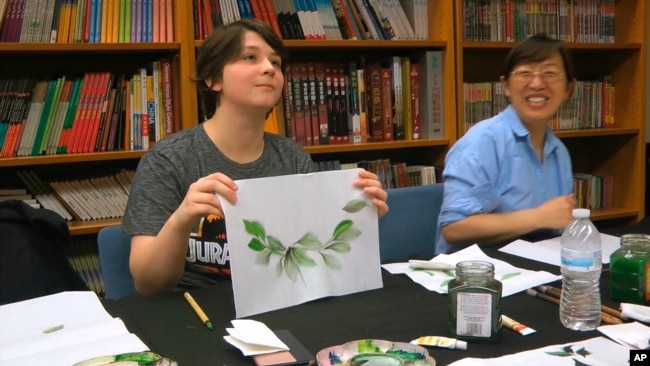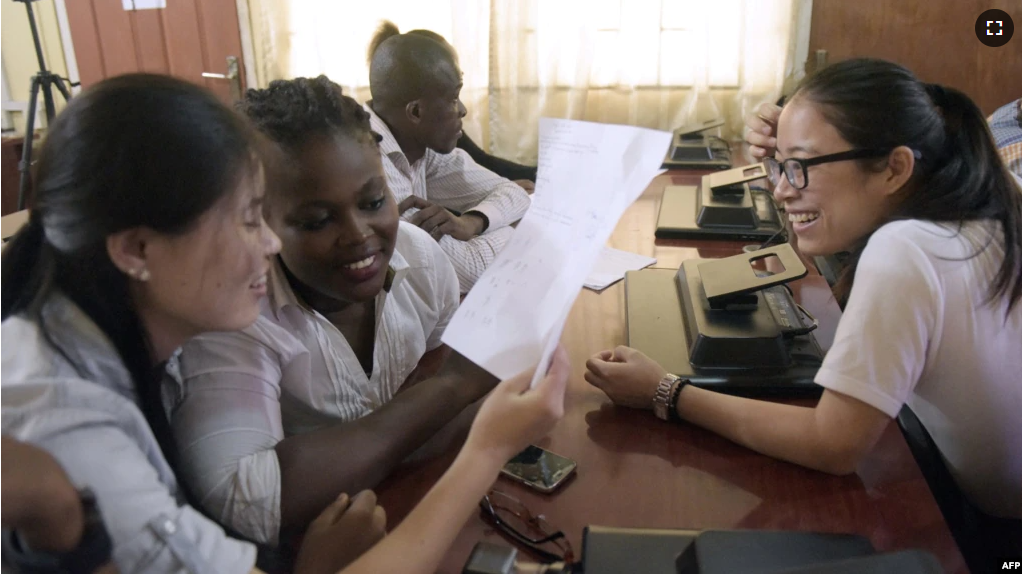A recent report says Chinese cultural organizations in America that closed after being named foreign agencies by the U.S. government have reopened under new names.
The National Association of Scholars, a non-profit organization supporting education, released the report. It said Confucius Institutes, cultural organizations with ties to the Chinese Communist Party, are reopening with different names or reorganizing.
Most of the institutes closed after being designated a foreign mission by the U.S. State Department. A foreign mission is an office that carries out diplomatic or similar work for a foreign government.
Of 118 Confucius Institutes that once operated in the United States, 104 have closed or are in the process of closing, the report said.
Of these, “at least 28 have replaced their Confucius Institute with a similar program, and at least 58 have maintained close relationships with their former Confucius Institute partner,” the report said.

Important to China
In April 2007, Li Changchun was a top propaganda official and a member of the Central Committee of the Chinese Communist Party (CCP). He told the Chinese state-run newspaper Xinhua that Confucius Institutes were an “important part of the CCP’s external propaganda structure.”
Critics considered the institutes propaganda machines for the CCP. They also considered them a tool to monitor and interfere with speech and activities at American universities. For example, in 2009, North Carolina State University canceled its plan to invite the Dalai Lama, the Tibetan spiritual leader, to speak after objections by the Confucius Institute.
Ten years later, in 2019, the U.S. Department of Defense announced it would not provide financial support for universities that had Confucius Institutes. In August 2020, the U.S. State Department designated the Confucius Institute U.S. Center as a Chinese foreign mission in the United States. The Center was considered the headquarters for Confucius Institutes in the U.S.
Organizations designated as foreign missions must give reports to the U.S. government about finances, employees, educational material, and activities that happen in the U.S.
U.S. schools were cutting ties with the programs even before the State Department’s finding.
In July 2020, the Chinese government reorganized and renamed the Confucius Institutes’ parent department. It is now called the Ministry of Education Center for Language Exchange and Cooperation (CLEC)
Xinhuanet is a state-controlled news service in China. It said CLEC created a separate organization, the Chinese International Education Foundation (CIEF). CIEF financially supports and oversees Confucius Institutes and many of their replacements.
Change of name only
On July 1, 2021, one day after its Confucius Institute closed, the College of William and Mary established the W&M-BNU Collaborative Partnership with Beijing Normal University, the school said. The Chinese university was the American school’s former Confucius Institute partner. It provided the programs the Confucius Institute used to offer.
Rachelle Peterson is senior researcher at National Association of Scholars and one of the writers of the report. She said nothing changed but the name.
Debate on influence
Perry Link is a professor of Chinese language studies at the University of California Riverside. Link said that although the Confucius Institutes cannot censor students, their influence on educators comes in other ways.
He said, “If you are in the Confucius Institute and create some programs with CCP money, would you host a memorial event for the Tiananmen Square Massacre? Of course not. Are there written rules that stop you? No. Did someone above tell you not to? No. It’s self-censorship, it’s psychological.”
Jonathan Sullivan is a China specialist and professor of political science at the University of Nottingham in Britain. He took part in studies of the Confucius Institutes in their original form. He told VOA in an email that the fears about what they are doing are “overblown.”
He said students need to learn the Chinese language and culture. But governments in many nations have not stepped in to support ways that students can study Chinese language and culture outside of the Confucius Institutes.
I’m Faith Pirlo.
Lin Yang reported this story for Voice of America. Gregory Stachel adapted it for VOA Learning English.
___________________________________________________________________
Quiz – Confucius Institutes Returning to US Schools under New Name

Start the Quiz to find out
___________________________________________________________________
Words in This Story
designate – v. to officially choose (someone or something) to do or be something
maintain – v. to continue having or doing (something)
external – adj. concerning relationships with foreign countries
monitor – v. to watch, observe, listen to, or check (something) for a special purpose over a period of time
censor – v. to remove the parts of a book or film that are considered to be offensive or a political threat
psychological – adj. of or relating to the mind
original –adj. happening or existing first or at the beginning
overblown – adj. that is made to seem larger, more impressive, or more important than it really is
